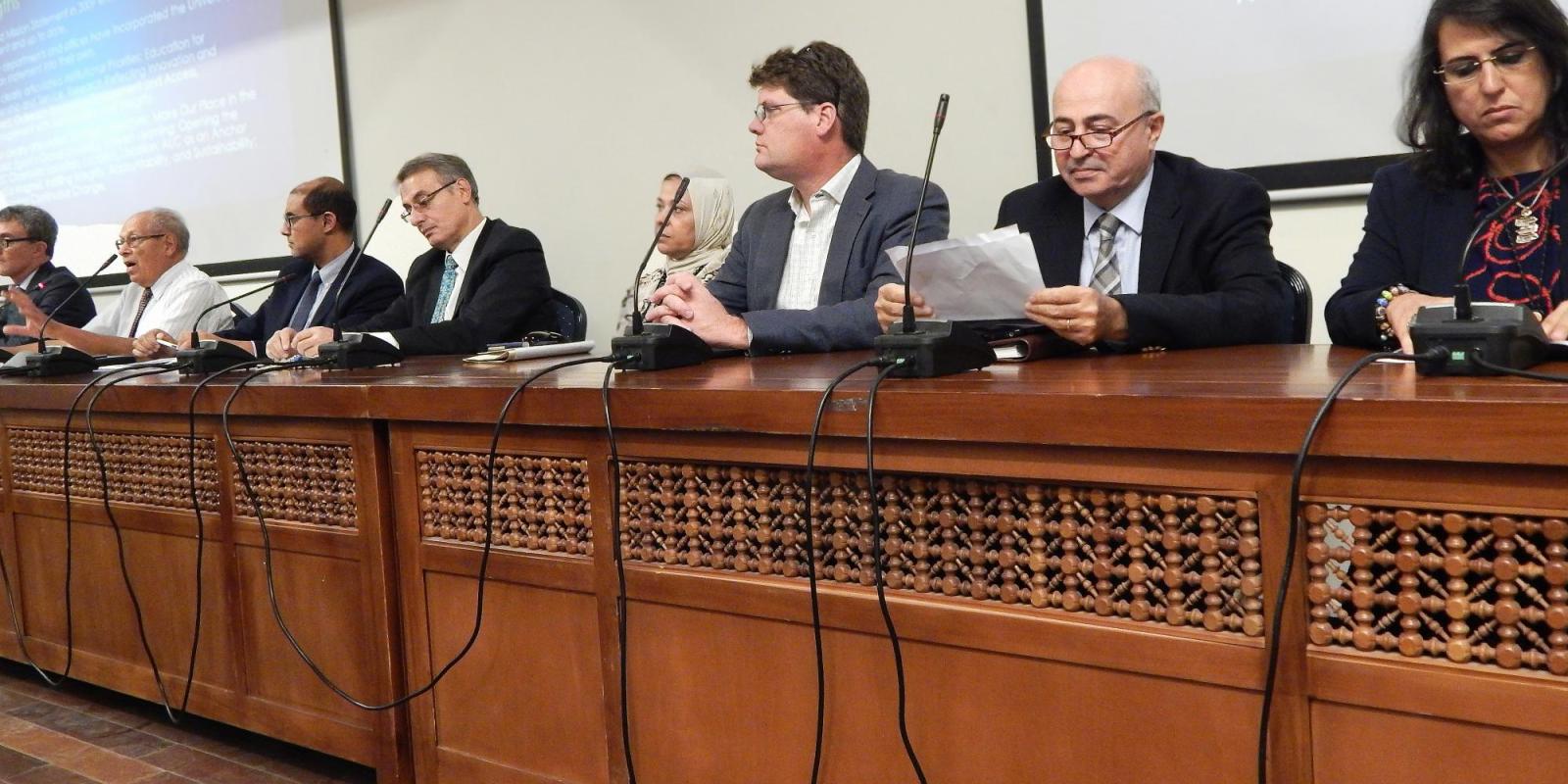
Accreditation Committee Discusses University Growth, Engages Community at Forum
Among AUC's strengths cited at the recent community forum on accreditation were the revision of the University's mission statement, development of clearly stated policies, a shift to primarily need-based financial aid, implementation of transparent grievance procedures, student support and improvements in the regular assessment of programs.
The forum brought together AUC community members to discuss the findings of a self-study report to be submitted for the reaffirmation of accreditation by the Middle States Commission on Higher Education (MSCHE) and invited attendees to share their feedback. Granted for a period of 10 years, this accreditation considers an institution as a whole and seeks to promote academic excellence. AUC has been accredited by MSCHE since 1982 and is now in its third cycle of accreditation with the commission.
The process of identifying areas of strength and goals for improvement to meet the requirements of MSCHE has spanned three years thus far, and has involved the dedicated efforts of 72 faculty and staff members. “Things are heading in the right direction,” said Ahmed Tolba, associate provost for strategic enrollment management and associate professor of marketing, reflecting on the University’s general progress in addressing many of the challenges presented during the last forum.
Composed of MSCHE accreditation steering committee chairs, the forum panel included Ahmed Tolba; George Marquis; dean of students; Ted Purinton, dean of the Graduate School of Education; Mahmoud Farag, director of the Engineering and Science Services unit; Helen Rizzo, chair of the Department of Sociology, Egyptology and Anthropology; Basil Kamel, professor in the Department of Architecture; and Zeinab Amin, associate dean for undergraduate studies in the School of Sciences and Engineering and associate professor of actuarial science.
Each chair reviewed the progress that has been made in each of the seven standards since the last forum in the spring, acknowledged challenges, and proposed recommendations to tackle these issues. The seven standards discussed are:
- Fulfillment of the University’s mission
- Ethics and integrity
- Design and delivery of student learning
- Support of student services
- Educational effectiveness assessment
- Planning, resources and institutional improvement
- Governance, leadership and administration
“Since the first forum, which was not that long ago, there have been considerable updates,” said Marquis, discussing the significant developments that have been made in achieving goals set for the ethics and integrity standard.
AUC community members have been invited to participate in a survey in which individuals can share their thoughts and participate in the process of overcoming the challenges that still exist. Some of the shortcomings mentioned dealt with policy communication, accommodations for students with disabilities, advising improvements and the goal of increasing the number of international students on campus.
With many improvements already in motion, steering committee members remain optimistic that the University can continue on a path of growth. “In my time working in assessment at AUC, I’ve seen an incredible amount of progress, so I think we have a lot to celebrate,” added Purinton, commenting on the improvements he has observed in educational effectiveness assessment.
